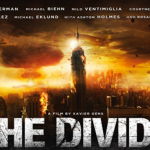Firefly (2002–2003)

In 2002, television saw the arrival of a unique show that mixed genres in a way that hadn’t been done before. Firefly, created by the brilliant Joss Whedon (best known for Buffy the Vampire Slayer), combined the sweeping vistas of a Western with the futuristic allure of science fiction. Set in a distant future where humanity has colonized new star systems, Firefly told the story of a ragtag crew aboard the spaceship Serenity, living on the fringes of society and trying to survive in a universe dominated by the oppressive Alliance.
Despite being prematurely canceled after just one season, Firefly has since become a beloved cult classic, capturing the hearts of millions with its quirky humor, compelling characters, and bold storytelling.
Plot Overview
Firefly is set in the year 2517, in a galaxy where the central planets are controlled by a totalitarian regime known as the Alliance. The show focuses on Captain Malcolm “Mal” Reynolds (played by Nathan Fillion), a former rebel soldier who fought against the Alliance in a civil war. Now the captain of the spaceship Serenity, Mal and his eclectic crew operate on the outskirts of the law, taking on any jobs they can to keep flying—even if that means smuggling, thieving, or transporting dubious cargo.
The crew of Serenity includes Zoe Washburne (Gina Torres), Mal’s loyal second-in-command; Hoban “Wash” Washburne (Alan Tudyk), the ship’s skilled pilot and Zoe’s husband; Jayne Cobb (Adam Baldwin), the gruff mercenary; Kaylee Frye (Jewel Staite), the cheerful and resourceful mechanic; and Simon Tam (Sean Maher), a doctor who is on the run from the Alliance after rescuing his sister, River Tam (Summer Glau), from government experiments.

River, a brilliant but damaged young woman with psychic abilities, becomes a central figure as the show progresses, with the Alliance hunting her down, desperate to retrieve their “project.” The crew must navigate dangerous territories, face off with criminals, and confront the looming presence of the Alliance—all while keeping their tight-knit group together.
Why Firefly Stands Out
One of the things that set Firefly apart from other sci-fi series was its seamless blend of genres. Whedon and his team created a future that felt lived-in, with characters who were relatable despite their extraordinary circumstances. The Western elements were evident in everything from the dusty, frontier-like planets they visited to the moral codes the characters lived by. Gunslingers, horse-drawn carriages, and duels were juxtaposed against spaceships and futuristic technology, creating a world that felt both familiar and alien.
The show’s dialogue, filled with witty banter and clever one-liners, also set it apart. Whedon’s sharp writing gave each character a distinct voice, making them instantly memorable. Fans quickly connected with the crew of Serenity, forming a bond with characters like the rebellious and charismatic Mal, the quiet strength of Zoe, and the enigmatic River.
The Cancellation and Legacy
Despite its groundbreaking premise, Firefly struggled with network issues from the start. Fox aired episodes out of order and often moved the show’s time slot, making it difficult for viewers to follow the story. As a result, ratings suffered, and the show was canceled after just 11 of its 14 episodes had aired. Fans were devastated, feeling that the show had been prematurely cut down before it could truly spread its wings.
However, the cancellation only fueled the passion of Firefly‘s growing fanbase. DVDs of the show sold well, and fan conventions began to spring up, keeping the show’s spirit alive. The fan campaign was so strong that in 2005, Joss Whedon was able to create Serenity, a feature-length film that wrapped up many of the loose ends left by the series. The film was a love letter to the fans who had fought so hard to keep the Firefly universe alive.
Cultural Impact
Today, Firefly is considered a cult classic, frequently cited in discussions of “shows canceled too soon.” It paved the way for other sci-fi series to explore unconventional genres and storytelling techniques. The show’s themes of loyalty, family, and rebellion against an oppressive system continue to resonate with fans, and its influence can be seen in other media, from video games to comic books and novels.
Suggested videos for you:











